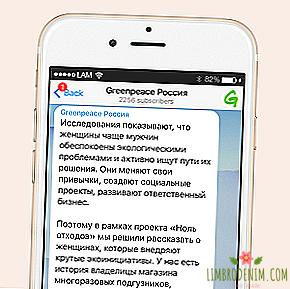"I call in custody": Why in Russia I would not dare to child

Olga Lukinskaya
My motherhood experience is one hundred percent positive. It is not easy to combine a family with two jobs and workouts, but fatigue does not overlap the daily happiness. I think that an equal partnership of parents plays a huge role here, as well as domestic issues solved for us by the state or the city: in Catalonia, where I live, raising a child is easy and convenient. Friends living in Russia talk about their everyday lives - and it’s obvious that even the little things are arranged so that people constantly experience discomfort or anxiety. I have repeatedly said that I simply would not dare to have a child in Russia - and this is not an exaggeration.

Last week, the social network circled a video shot by a resident of Rostov-on-Don, where a young mother of three children rolls the stroller, carries bags of garbage and at the same time leads the crying average child by the hand, patiently and benevolently explaining to him that now all they need is to throw out the garbage, then everyone will go for a walk. The author of the video was not too lazy to go out, having heard the baby crying, began to threaten the woman by the police and the guardianship, said that the child has been crying for about ten minutes, and "he never had such a thing." On the Internet, a blogger has earned mass condemnation, and his facebook profile is already closed. True, there were also comments that his actions were correct - allegedly a man showed non-indifference and care.
Non-indifference and care in the case of a specific mother with three children is to ask if you can help with something or, as many commentators said, to offer at least to carry the packages, freeing her hands. Calling the police, threatening, filming a family on video, asking personal questions (but not with the aim of finding out, but intimidating) and explaining to an unfamiliar woman that she is supposedly a bad mother is not a concern, but an attempt to assert herself. This is undisguised aggression, which, as usual, is directed to a more vulnerable side. In the end, it's just rudeness: the question "is it your child, something does not look like" causes a cold skin.
On the territory of the former Soviet Union there is an opinion that in developed countries it is worth the child to cry or, even worse, for some of the adults to raise a voice on him - representatives of the guardianship authorities will immediately arrive. This is a great exaggeration, and in most cases, common sense does work; the absence of unnecessary prohibitions and non-violence in education does not mean that there should be no borders at all. In addition, even the most peaceful and balanced parents sometimes have to shout or grab the child by the hand - for example, in a dangerous situation if he tries to run out onto the road. Of course, domestic violence, including in relation to children, exists in all countries - but as long as some doctors are taught to recognize it, and parents recognize the existence of problems and improve relations with the child, Russian celebrities are considered normal to tell in detail how to punish a five-year-old boy with a belt. and the dark room, "to grow a champion."
Of course, there are situations when it is possible and necessary to call the police - however, in really serious situations, as practice shows, this turns out to be useless. We all remember the story of Margarita Gracheva, with whose husband the district police officer "had an educational conversation"; after that, the husband took the woman to the forest, where he chopped off her hands with an ax. In a perfectly functioning system, law enforcement agencies respond to dangerous situations by providing support and protection. Victims of domestic violence are placed in shelters, and for parents who cannot restrain themselves and shout at the child or beat him, conduct training, explain the basics of psychology and help them solve their own problems.
Of course, it is very convenient to complain about other children - they are defenseless, and their parents are already under pressure
Unfortunately, children in Russia are often perceived as a unit that does not belong to humanity, such as domestic animals. Children "interfere", "annoy" and "cry under the windows for ten minutes." Of course, it is very convenient to complain about other children - they are defenseless, and their parents are already under pressure. Everyone had heard from others how a child “interfered” once on an airplane, however, situations where adult passengers caused irritation — drunk, strongly smelling, throwing back the chair on your laptop, loud — do not count. But an adult, especially a stronger physically or drunk, to make a remark is at least scary - but as a maximum, you don't want to make it out of banal respect for other people's peculiarities and needs. But it is always easy to express complaints to the parents of a small child.
We forget that the child did not choose to be a child, and not to understand everything and not always to obey - this is his nature. Small children cry for a variety of reasons, including frivolous in the eyes of an adult. Since it is customary in children to cry, without having understood, to accuse parents, ironic flash mobs on the subject “why I am a bad parent” were launched on the Web more than once. The cause of hysteria can be "I did not allow him to eat dog poop," "the waves were too strong at sea, but I could not reduce them," "she bit the apple, and it ceased to be whole, and now I am a bad mother." My favorite is the story when the child peed in the pot, he remembered that he wanted to do it standing up, but there was already nothing to write, and he burst into tears.
Hysteria in a small child is a manifestation of the normal stage of development, when he had not yet realized that all desires can be instantly fulfilled. According to pediatrician Sergei Butrii, such behavior is not a disease or a manifestation of a bad temper, so the worst thing you can do in such a situation is to try to get in with criticism or exhortation. The best thing is to tactfully ask an already strained parent if it is possible to help with something.

What to do with this whole situation? I think starting with myself: to be kinder and more open, not to get angry about other people's children and not to teach the lives of their parents. To bring up their own kind and empathetic - so that they preserve these qualities, becoming adults. Not to disagree with the imposed feeling of guilt and to understand that the conviction is in the head of the condemning. Why a pediatrician in Barcelona tells me: “Do not worry if you can’t feed a child in a balanced and varied manner, these are children, sometimes they just refuse to eat something and you don’t have to blame yourself for that”, Moscow declares "what did you think when you gave birth?". Certainly not because I am a good mother, but she is a bad one.
Caring is the benefits to large families, such as tax returns and discounts on studies of any level, including universities, and not just the possibility of free parking. These are safe children's centers and truly anti-vandal fences around kindergartens. This is a responsibility and non-pleasing attitude towards closed fire exits. Caring for children and mothers is not talking about demography, but creating conditions in which you want to have children and not be afraid. To give birth to a child in a country where it is forbidden to bring in vaccines and good medicines, a desperate step.
Caring is not a social advertisement about the evil of abortion, but a social advertisement for maternity leave for both parents; it is the creation of conditions in which almost any pregnancy will be desired. These are excellent and accessible to all kindergartens from an early age - so that when a mother goes to work, the cost of a nanny does not take away all her salary. Kindergartens, in which no one scandals because of a stuffy nose or cough in a child, and everyone understands that this is a normal phase of "sharing" viral infections, and not the desire of "bad parents" to infect other children. Raising children is expensive, and there is no discussion about any improvement in demography until there is normal assistance to parents, the main part of which is to enable both of them to fully work.
Raising children is expensive, and we won't talk about any improvement in demography until there is normal assistance to parents, the main part of which is to give both of them the opportunity to fully work.
I know women who, having given birth to a boy abroad, do not apply for his Russian citizenship - simply out of fear that in eighteen years they can take him to the army. They have eighteen years to spend the time and money on a visa to go to grandparents, but fear is stronger. Therefore, concern for demographics is also a contract army without hazing. These are schools where bullying is not allowed. This is the police who respond to calls adequately, and not in the format "when they kill, then call." These are policemen whose stories do not frighten children, but explain that they are good people who catch criminals.
These are sidewalks convenient for wheelchairs, elevators at each metro station, an opportunity to have lunch or dinner with children anywhere, these are toilets adapted for changing diapers everywhere, and not only at IKEA. This is such an upbringing when a grown-up person, seeing a crying child, is interested in his mom if she needs help, and does not threaten her with the police and guardianship bodies. In the meantime, being pregnant and raising children is scary, dangerous and uncomfortable, more and more people will simply refuse this aspect of life - or look for an opportunity to do it in another country.
Photo: Andrii Kozachenko - stock.adobe.com, Andrii Kozachenko - stock.adobe.com




